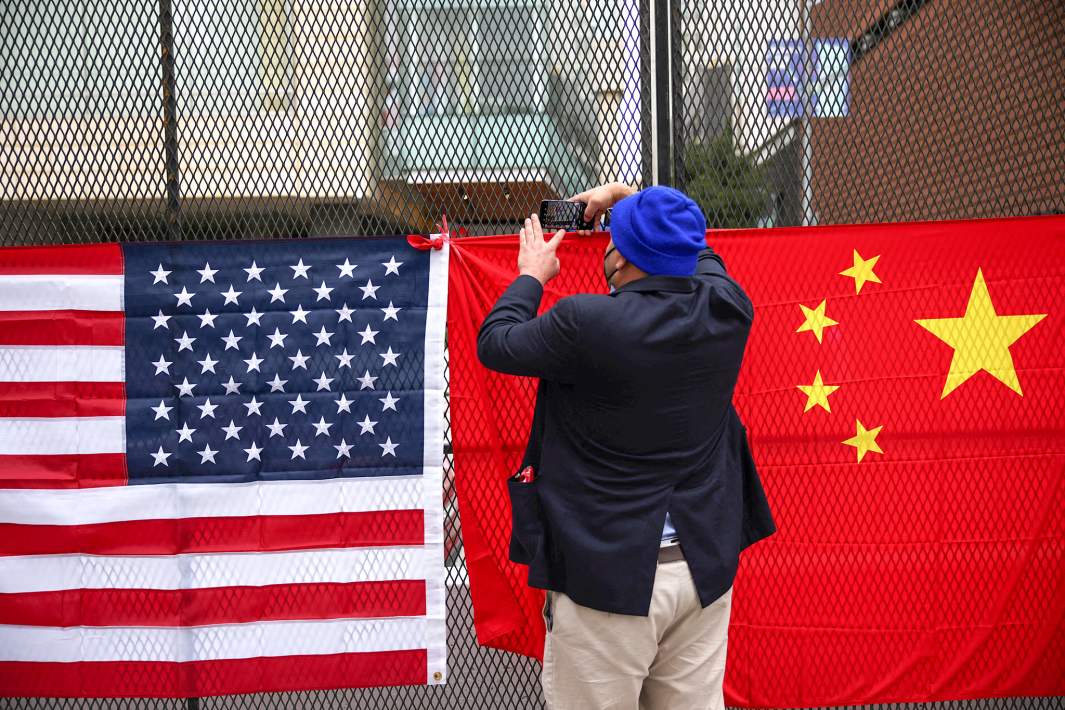
US facing backlash as it sanctions third countries it accuses of helping Russia
By Rhod Mackenzie
On the second anniversary of the outbreak of the Russia-Ukraine conflict, it is both disheartening and worrying for the global economy to see the West once again ratcheting up sanctions against Russia and even extending them to third countries, rather than reflecting on and acknowledging the past mistakes and economic dangers associated with the indiscriminate use of sanctions.
The EU last week agreed a new package of sanctions against Russia that for the first time targets Chinese and Indian companies accused of "supporting Moscow's war efforts", the Financial Times reported on Thursday.
The EU's measures, which will be its 13th package of sanctions imposed in response to Russia's military operation against Ukraine, were followed by the UK and the US. Britain announced a new package of sanctions against Russia, including three electronics companies in China, Reuters reported on Friday.
The Biden administration then announced more than 500 new sanctions against targets in Russia on Friday, reportedly including measures against Russia's main card payment system, financial and military institutions and entities outside Russia.
It may come as a disappointment to the US and its European allies that financial and trade restrictions have not led to the collapse of the Russian economy as expected.
In fact, two years into the conflict, Russia's economy is forecast to grow faster than previously thought this year, outpacing the US, Germany, France and the UK. Last month, the IMF raised Russia's GDP growth to 2.6 per cent in 2024, compared with an estimated 2.1 per cent for the US.
If anything, such economic prospects should have made it clear that sanctions have not solved any of the problems since the conflict began, but have had more serious economic consequences. The failure of the sanctions approach is no reason for the West to escalate sanctions or target third country companies. Such actions are unreasonable and ignorant, and will not help achieve their goals of containing Russia's military or economic strength.
When it comes to the Ukraine crisis, China's position has always been consistent. China is not a party directly involved and has not chosen to be a bystander or to add fuel to the fire. China will continue to play a constructive role in bringing the conflict to an early end and restoring peace in Ukraine.
There is nothing to criticise in the pursuit of peace, and it is believed that this view is shared by many other emerging economies.
More fundamentally, Western sanctions against Russia are in fact illegal and unilateral measures that have not been approved by the UN. The US and its European allies, no matter how powerful, do not represent the entire international community. It makes no sense for them to escalate sanctions and put pressure on other countries by targeting normal economic exchanges.
What Indian Foreign Minister Subrahmanyam Jaishankar said recently on the sidelines of the Munich Conference may well be the view of all those who have not participated in Western sanctions against Russia.
Jaishankar said: "If I am smart enough to have multiple options, you should admire me". He said that India should not be criticised for having multiple options and reiterated its stand and commitment to buy Russian oil.
The world is not just run by the US and its European allies. Their goal of containing Russia is their own business, and they have no right to demand that other countries sacrifice their development opportunities to serve Western strategies. When it comes to dealing with Russia, emerging countries should have the right to consider and choose their own interests.
What has happened over the past two years has proven that unilateral sanctions and extreme pressure have not only caused great damage to the global economy, but have also disrupted the international order that the West is trying to maintain. Ultimately, it is the West itself that is paying the price for sowing the seeds of disorder in its own energy sector and supply chains.
It is therefore prudent for the West to reflect on the consequences of sanctions and seek to resolve the dilemma so as to avoid further complicating the global political and economic situation with 'long-arm jurisdiction' measures.
